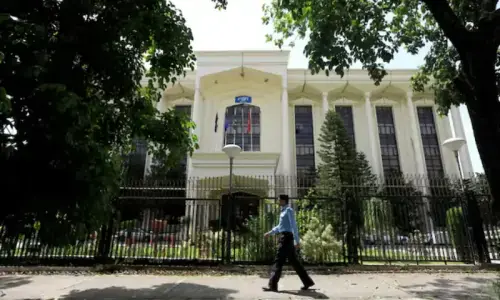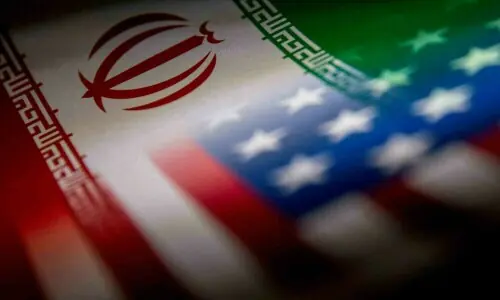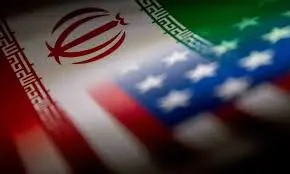
KARACHI: Is it true that losing your entire fortune at once is less painful than losing only half of it? Or is financial ruin in small doses more bearable than complete destruction in one fell swoop?
I put this question to Nasir Ali Shah Bukhari, patriarch of the Khadim Ali Shah Bukhari (KASB) group that ran until 2014 a multi-billion-rupee empire with stakes in banking, brokerage, asset management, real estate and oil and gas exploration industries.
“I never calculated how much money I lost that night. I have no regret,” said Mr Bukhari who had built his business empire from the ground up over decades but lost it all in just one night six years ago.
In the run-up to KASB Bank’s distressed sale to another entity at a token price of Rs1,000, the banking regulator put it under a moratorium back in November 2014. In addition to losing its bank with 105 branches and total assets of Rs67 billion, the KASB group was deprived of around half a dozen different businesses. These companies existed on the balance sheet of KASB Bank as subsidiaries at the time of regulatory action.
When the dust settled around mid-2015, the KASB group had been reduced to a shadow of its former self. The conglomerate was stripped bare of its myriad businesses in one go.
“All that money never meant anything to me. I still live in the same house. My living standard is the same. The whole episode would’ve affected me had I been living on borrowed money. Allah has always kept me away from borrowing,” said Mr Bukhari who is now forking over millions from his savings to resurrect his business empire.
He’s gone back to his mother industry and is trying to get his brokerage business — which he insists on calling fin-tech — off the ground.
Reputational damage
Re-established as Khadim Ali Shah Bukhari Securities Ltd, the company is doing stock brokerage, start-up financing, corporate advisory and restructuring. “Our trading volumes are not that huge yet, but our (mobile app) downloads are over 150,000. Converting that into a clientele is a (long) process,” he said, vowing to bring one million users to his platform.
The claim sounds borderline crazy as hardly a couple of hundred thousand investors trade shares on the national stock exchange. “If the number of Facebook users and cell phone subscribers can be in tens of millions, why can’t we also have a million stock investors?” he said.
Before the moratorium, KASB Securities was the country’s largest stockbroker at least in terms of the number of retail clients (28,000). More than one-third of its average annual brokerage revenue of Rs700 million originated from retail clients, according to Mr Bukhari.
He claimed that the new brokerage business has already become one of the top 10 players in terms of revenue. “More than 90 per cent of institutional investors in Pakistan have also approved us as their broker. That’s because ours is a tradition of trust,” he said.
A cynic will scoff at the suggestion that a financial service provider can avoid reputational damage after getting a regulatory kick in the seat of its pants. What the KASB group suffered was no slap on the wrist for a minor transgression. The central bank used its whiplash to put it out of business for allegedly not playing by the rules.
“No, no, no, no. There was no reputational damage. Everyone saw we were wronged. Our brokerage didn’t go into default for even one hour. At the time of the suspension of trading, we possessed our clients’ assets of Rs150bn in our CDC account. No other brokerage had even 30pc of that much collateral. Any failure on part of a stockbroker is usually followed by drawn-out cases and recovery drives. But our clients got their funds back immediately. If anything, the whole episode enhanced our reputation,” he said, insistently.
The KASB group might have its roots in stockbroking, but it did smell big bucks in its heyday in commercial banking. How does it feel to be stuck at the millionaires’ joint of stockbrokers after being in the staid but exclusive billionaires’ club of commercial bankers?
“Our area of interest has changed. I’m creating real wealth now. We’re doing agro-forestry. My mission is to plant 1bn trees on pieces of land I own in Punjab, Sindh and Balochistan,” he said without disclosing the total size of his land.
The idea of planting a billion trees on one’s own land sounds as iffy as the billion-tree tsunami promised by Imran Khan. He says the trees he’s planting will be a source of most expensive wood while the fodder he’s harvesting there is economical and full of nutrients for livestock.
Reversible transaction?
The forced sale of KASB Bank in 2015 may now be water under the bridge for most observers. But Mr Bukhari and some of the other shareholders are still waging a legal battle to reverse the five-year-old transaction.
“It was a dacoity. We’ve filed a suit of Rs14.5bn against 16 respondents. The court will decide who will pay us. But we deserve Rs14.5bn along with a late payment surcharge,” Mr Bukhari said.
According to the regulator, KASB Bank was undercapitalised. The central bank–appointed audit firm had declared at the time the entity had a negative net worth i.e. its liabilities exceeded its assets. In simple words, the bank didn’t own enough assets — loans, investments, properties etc. — to counterbalance its liabilities such as customer deposits worth Rs62bn.
Mr Bukhari and other shareholders have contested the valuation method: the audit firm assessed the bank’s assets at book value, which didn’t take into account market price appreciation. “I was in surplus of more than Rs14bn on the basis of mark-to-market,” he said while referring to a valuation technique that records assets at their latest available market prices.
Going by the share price, which is another approach to value a company, the bank was worth Rs5.85bn at the time. “No one can force sponsors to sell a business at a price less than its share value. Why should the shareholders suffer?” he said.
Mr Bukhari is not only demanding compensation but also asking the court to nullify the takeover. He says the federal legislature has yet to approve the amalgamation, as required under the Banking Companies Ordinance, which gives him a better chance to repossess what he believes is his. “It can’t be called done yet. It can be reversed. We expect to get justice. We’ll fight on.”
Published in Dawn, February 14th, 2021
































